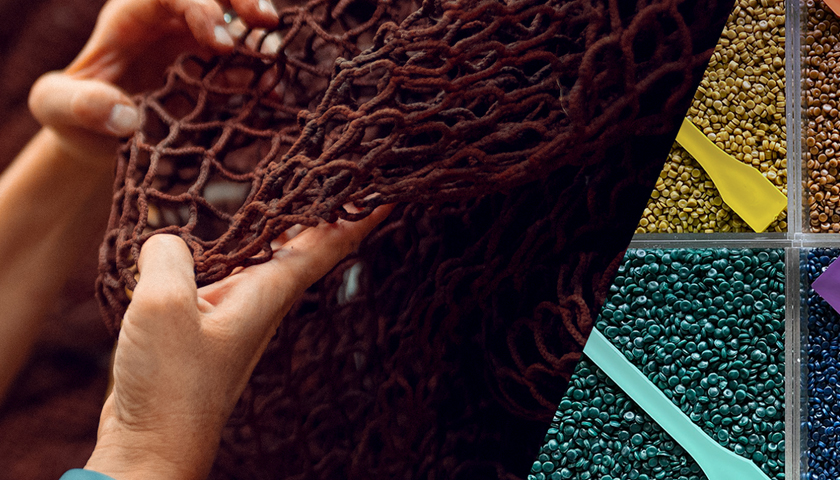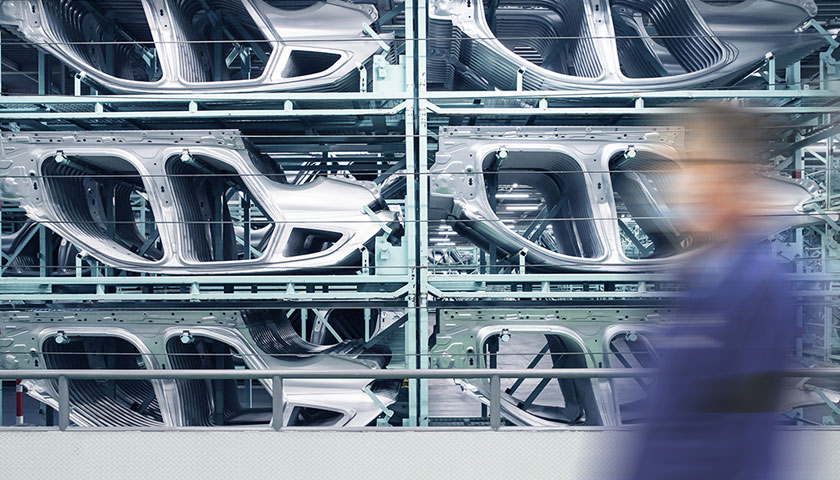In a first for the automotive industry, the BMW Group is using recycled marine waste to produce visible trim parts in the injection moulding process.
The equivalent of about 35 shipping containers of plastic waste ends up in the seas and oceans every hour. Plastic bottles, coffee cups, bags and even old fishing nets are massive pollutants in the waters. Pollution by ocean plastics is a growing challenge in many regions of the world. The BMW Group cooperates preventively and sources nets and ropes from ports to prevent fishing nets being disposed of in the sea. An exclusive recycling method allows these to be processed into a plastic recyclate that is now used in an injection moulding process to produce visible trim parts. This is unique in the automotive industry.
“Recyclates have much lower CO2 emissions in their production, which lowers the carbon footprint. Our goal remains in the end to be able to completely recycle all products,” says Roberto Rossetti, Head of Vehicle Lifecycle and Product Sustainability of BMW Group. “When it comes to materials, the focus is firmly on sustainability. We carry out research in our own laboratories, work with start-ups and talk to representatives within the recycling industry.”
The BMW Group will go one step further in recycling maritime plastic waste in cooperation with the Danish company PLASTIX. The fishing nets are sorted by type then processed into a plastic recyclate in an innovative process. Until now, the automotive industry has only used recycled marine plastic in the form of fibres for new vehicle components. However, this recyclate can now for the first time be used in injection moulding.
This creates even more application possibilities for recycled plastics. The injection-moulded components are trim parts used in both invisible and visible areas for the exterior and interior of the Neue Klasse models. The Neue Klasse models from 2025 onwards will for the first time have plastic cladding parts whose raw material consists of around 30 per cent marine plastic waste. The carbon footprint of the resulting components is around 25 per cent lower than the corresponding components made from conventionally manufactured plastics.
BMW already uses recycled fishing nets for the fabrics used to make headliners and floor mats for the BMW i3, BMW iX and other models. Daniela Bohlinger, Head of Sustainability BMW Group Design, sees this as a logical consequence of the change in environmental awareness that is playing a growing role at BMW: “It was important to us that we could use a recycled material as a base for these products. The ECONYL® nylon, which is extracted from fishing nets and other nylon waste, has very good properties for our purposes. It has a beautiful colour palette you can work very well with as a designer. It goes without saying, of course, that a product made from recycled material must look flawless and have excellent properties.”
The nets are cleaned in several steps and then broken down into their chemical components. The result is pure ECONYL® nylon granulate, which has exactly the same composition as petroleum-based “standard” nylon. ECONYL® also has the advantage that it can always be returned to the material cycle after use and processed into a new product. This makes it a fully circular product. A clinching factor for Rossetti: “Our planet’s resources are finite and at some point they will run out. If we want to keep the economy as we know it going, we have to move towards a circular economy in the long run, based on materials that already exist.”
The BMW Group has set itself the overall goal of increasing the proportion of secondary materials in the thermoplastics used in new vehicles from around 20 per cent at present to an average of 40 per cent by 2030. The BMW Group is consistently driving forward the increase in the proportion of secondary materials in automotive production with new procurement channels and innovative manufacturing processes.



